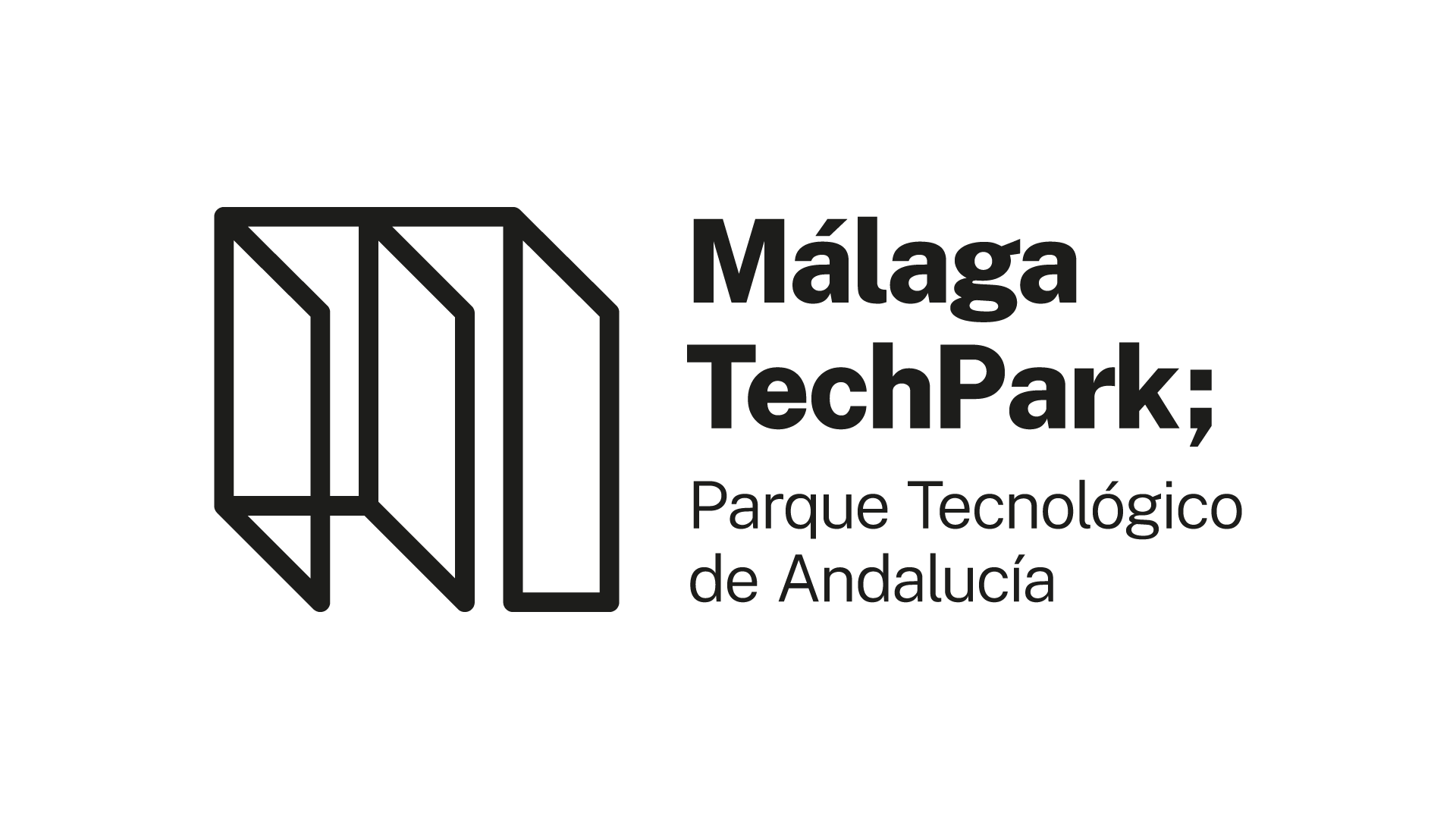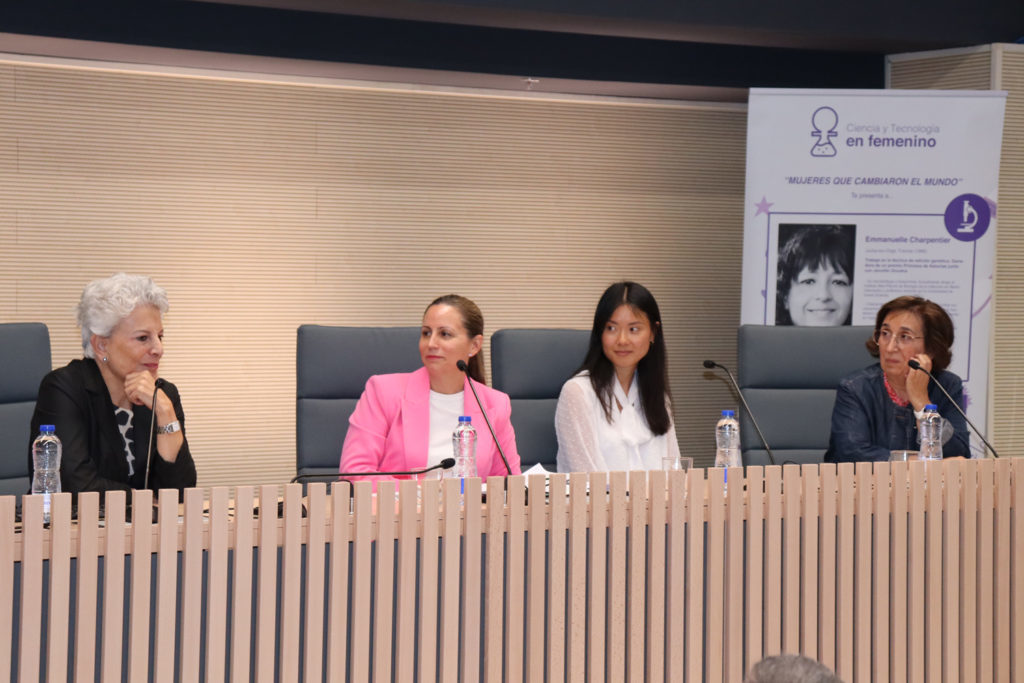-
The initiative has put the finishing touch to its 6th edition in a very special day at the Madrid-Puerta de Toledo Campus of the Universidad Carlos III de Madrid (UC3M) with the participation of the director of the Women and Science Unit of the Ministry of Science, Innovation and Universities, Silvia Rueda, and with the support of the UC3M Science Park – Leganés Tecnológico.
-
The results of this edition of the program show that 7% of the girls have changed their minds and want to work in a profession related to STEAM disciplines after participating in the program.
The ‘Ciencia y Tecnología en femenino’ (Science and Technology in Feminine) initiative of the ‘Asociación de Parques Científicos y Tecnológicos de España’ (Association of Science and Technology Parks of Spain), also known as APTE, has put the finishing touch to its 6th edition in a very special day at the Madrid-Puerta de Toledo Campus of the Universidad Carlos III de Madrid (UC3M) with the participation of the director of the Women and Science Unit of the Ministry of Science, Innovation and Universities, Silvia Rueda, and with the support of the UC3M Science Park – Leganés Tecnológico.
The day began with a welcome from the UC3M Vice-Rector for Sustainable Development, Cooperation and Healthy Campuses; Beatriz López-Boada, the Managing Director of APTE; Soledad Díaz, and the Director of the Women and Science Unit of the Ministry of Science, Innovation and Universities; Silvia Rueda.
Beatriz López-Boada has highlighted the crucial role of universities in promoting the rise of women in entrepreneurship and/or STEAM, as centers of learning, research and knowledge dissemination. She has also expressed the commitment of the Universidad Carlos III de Madrid to initiatives such as ‘Ciencia y Tecnología en femenino’ (Science and Technology for Women) or ‘STEM for Girls’ to promote STEAM vocations among girls and young women, highlighting the path towards greater female entrepreneurship.
For her part, Soledad Díaz, emphasized the importance of making these studies visible among the younger female audience due to the low participation of this group in these subjects, especially in technological studies, and highlighted the ability of science and technology parks to promote STEAM vocations and thus contribute to creating a more competitive innovation system.
Silvia Rueda has highlighted the importance of providing references close to young women to inspire their interest in STEM and address the handicaps they face, such as stereotypes and lack of visibility through initiatives such as ‘Ciencia y Tecnología en femenino’. She has also pointed out that “despite the fact that women occupy a significant proportion of jobs in STEM and represent more than 34% of the population in science and technology, their presence is still invisibilized”.
Besides, she has also emphasized the need to ensure decent and stable careers for young people, and advocates a change in the structure of society towards collaborative leadership. It highlights the crucial role of collaboration between the administration, institutions, companies, researchers and teachers to build an inclusive and equitable future in science and technology.
Main information
After the institutional welcome, the head of the project, Lole Franco, announced the main results of this edition in which 17 science and technology parks, members of APTE, have participated and a total of 46 workshops have been held with the participation of nearly 4,000 secondary school students and students in the last years of primary school from 63 schools throughout Spain.
In addition, the surveys carried out among the participating students show that 34.6% of the girls surveyed opt for a profession related to STEAM branches, but only 10% opt for purely technological professions.
On the other hand, 7% of the girls say they have changed their minds and want to pursue a profession related to STEAM disciplines after participating in the program. Within this percentage, 20% of girls said that they would change their mind to opt for a profession in the scientific field, while 4% would choose a technological profession, among which engineering stands out.
If we add this percentage to the change of opinion that has occurred in previous editions, 8% of the nearly 10,000 participating girls have changed their minds and have selected a STEAM discipline thanks to the more than 250 days held that began in 2018 with the collaboration of twenty science and technology parks members of APTE.
Round-table conferences
The session continued with a round table conducted by the managing director of APTE, which discussed leadership, empowerment, entrepreneurship and STEAM vocations with the participation of Maria Marced, corporate director, former president of TSMC Europe and former general manager INTEL EMEA; Emma Fernandez, independent director of Axway, Digital Consumer Bank, Iskaypet and Metrovacesa; Ana Ye Zhang, CEO and founder of Ownmed Innovation.
During the round table, María Marced’s motivation to study telecommunications engineering was explored, highlighting her path in a sector with low female participation, as well as her experience leading TSMC in Europe, the world’s largest semiconductor and chip manufacturing company.
Emma Fernández shared the keys to her experience as CEO of Indra and her contribution to transforming a medium-sized company into a multinational that currently counts with more than 38,000 professionals.
Ana Ye reflected on her decision to become an entrepreneur and the balance at the helm of Ownmed Innovation, an entrepreneur and UC3M spinoff, and creator of a medical device to help sick people.
Finally, all of them have offered advice to those girls undecided about pursuing STEAM careers, sharing why it was such a clear decision for them.
Contest
The session ended with the announcement of the winner of the competition “Innovative proposals to the challenges for sustainable development”, which went to the group of students from IES Borriol, for their proposal “REMIBOT” in collaboration with Espaitec, ‘Parc Científic i Tecnològic’ of the Universitat Jaume I de Castelló.
The winners received a trophy of recognition, a robotics kit and a book for each of the members of the group.
In second position, the Mas Camarena School was recognized for “El recolector canino” in collaboration with the ‘València Parc Tencològic’ of Paterna. The third position went to CEIP Ibarburu for its proposal “RETODS”, which participated together with the ‘Parque Científico y Tecnológico Cartuja’. Both groups were also awarded with a book and a diploma.

